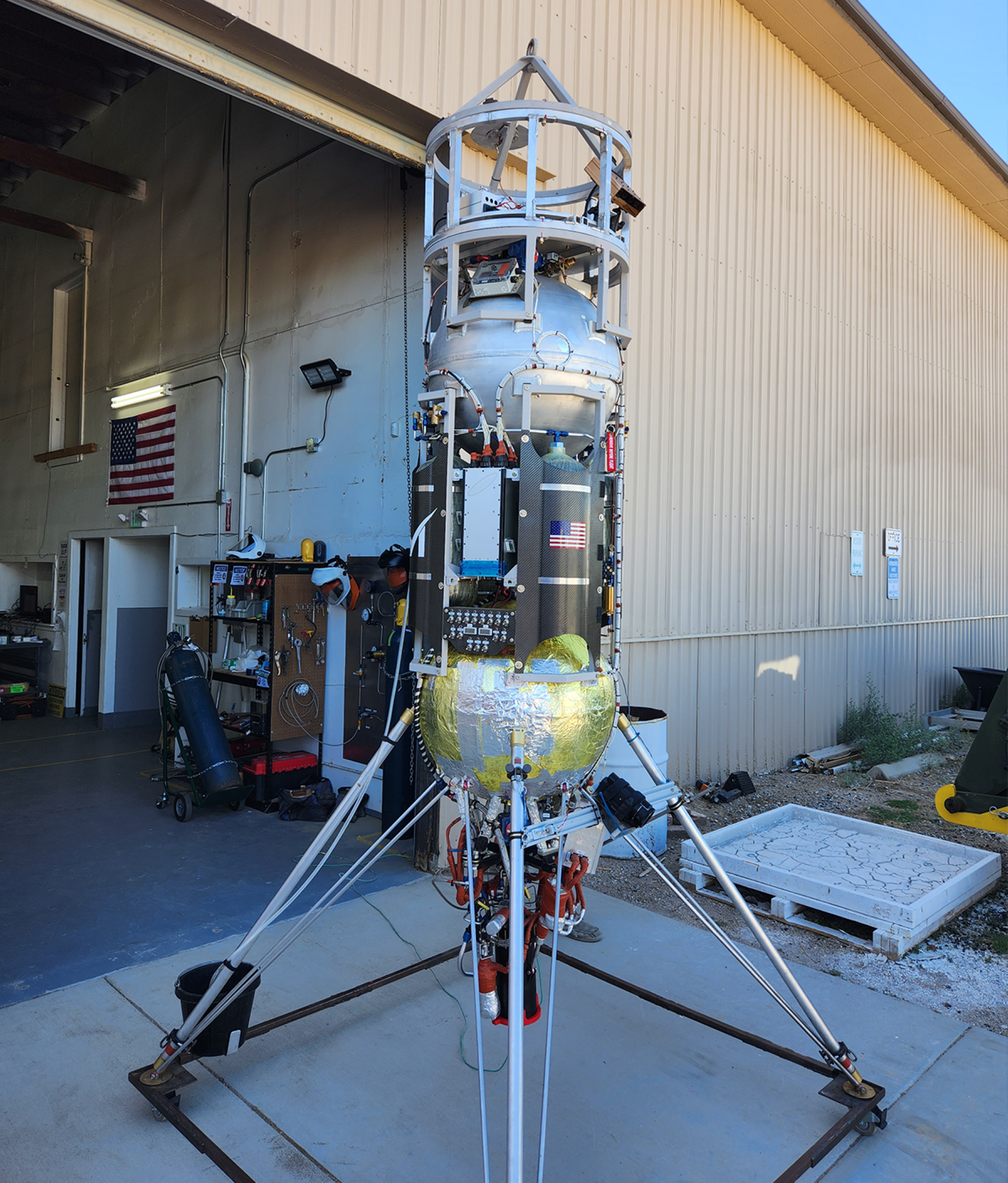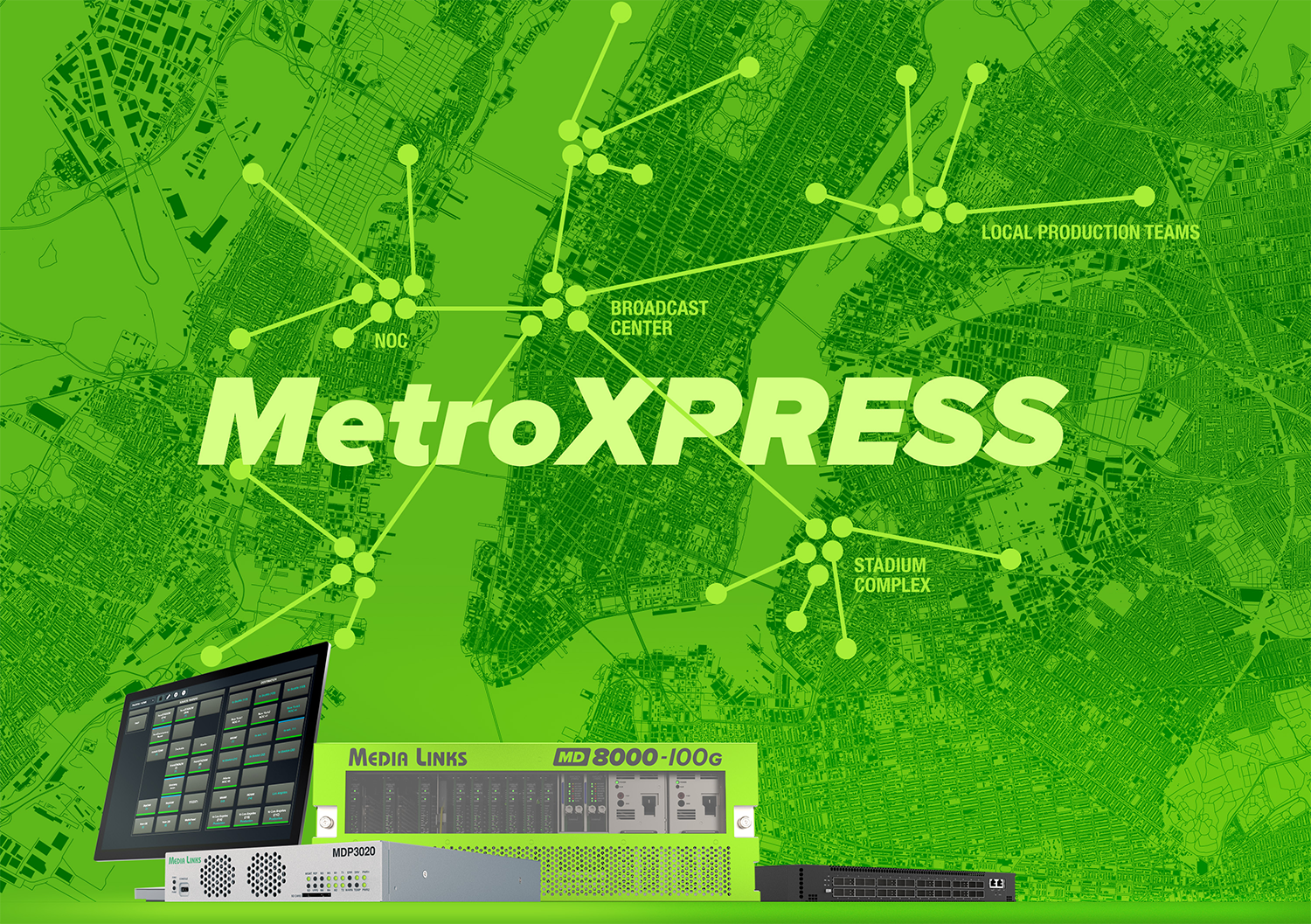NASAPress Releases
Xodiac Flies First Astrobotic Customer Campaign

| Astrobotic, a leader in vertical-takeoff, vertical-landing (VTVL) reusable rockets, successfully completed a flight test campaign for the University of Central Florida (UCF) last week at the company’s facility in Mojave, CA. The campaign consisted of four flights aboard Astrobotic’s Xodiac VTVL rocket to test UCF’s Ejecta STORM laser sensor, which was developed by Dr. Phil Metzger to study plume-surface interactions (PSI) between a rocket plume and lunar regolith. This test campaign will provide valuable data for researchers, including Dr. Metzger, as they seek to better understand PSI for humanity’s return to the Moon under NASA’s Artemis program. |
| The test flight was conducted by Astrobotic’s Propulsion & Test Department whose workforce, vehicles, and assets came from Masten Space Systems, which Astrobotic acquired last September. Xodiac is Astrobotic’s fourth-generation rocket-powered terrestrial lander that simulates lunar and planetary landings, tests flight systems and hardware in the loop, retires risk, and advances technology readiness for terrestrial and space applications. Last week’s successful campaign continues the vehicle’s flight heritage of 150+ successful flights—more than any other active rocket—with 100% mission success. The campaign also marked the twentieth anniversary of Masten’s founding, which led to several historic milestones in reusable rocketry and over 600 successful VTVL flights. |
| “It’s great to be flying again. I’m thrilled that we can continue to provide this unique flight test capability for our customers as part of Astrobotic. We designed Xodiac for maximum reusability, and the fact that we’re still flying the same vehicle eight years later says a lot about Xodiac‘s durability and the value of the services it provides,” said David Masten, Chief Engineer for Astrobotic’s Propulsion & Test Department. |
| “I’m grateful for our talented team and supportive management who have helped us pick back up right where we left off,” said Stefan Lamb, Astrobotic’s Xodiac Launch Conductor. “Joining Astrobotic has opened up a whole new set of test opportunities for us. Our team has been working hard to resume flight operations and continue to provide exceptional service to our customers as well as other departments within the company.” |
| Xodiac‘s return to flight was made possible by the test team led by Lamb and Masten. With the completion of this milestone, Astrobotic will turn its attention to flying its 2023 customer manifest, which includes test campaigns for NASA and Draper, and supporting space technology innovators as they pursue grants for future flight testing. |
| Astrobotic’s next Xodiac campaign will provide flight testing for the three winning teams of the TechLeap Prize, which is managed by NASA’s Flight Opportunities program. These teams have developed promising systems to detect hazards from an altitude of at least 250 meters and process the data in real-time to help spacecraft land safely in the dark. Xodiac will provide these teams an opportunity to demonstrate their systems in a realistic night-flight environment aboard an actual rocket lander. |
| Xodiac is also scheduled to fly campaigns in 2024 for NASA, San Diego State University, and Astrobotic’s Space Robotics department. The latter campaign will test Astrobotic’s novel hazard detection and avoidance system that will help guide its Griffin lander to a soft landing on the Moon’s south pole in late 2024. |
 |
| About Astrobotic Astrobotic is the Moon company and more. We develop advanced navigation, operation, power, testing, and computing systems for spacecraft. Our fleet of lunar landers and rovers deliver payloads to the Moon for companies, governments, universities, non-profits, and individuals. To date, we have two fully funded lunar lander missions on the books, and more than 60 prior and ongoing NASA and commercial technology contracts worth upwards of $450 million. Astrobotic was founded in 2007 and is headquartered in Pittsburgh, PA. www.astrobotic.com |
| More About Astrobotic’s Xodiac With Xodiac fully returned to flight, Astrobotic provides end-to-end payload development and delivery services. As companies, governments, universities, and non-profits build out systems to prepare for flights to the Moon, Xodiac offers the first terrestrial on-ramp to test science instruments, exploration systems, technology demonstrators, and other payloads on a lunar or planetary descent trajectory in preparation for future missions. Once tested on Xodiac, Astrobotic’s Peregrine and Griffin landers provide delivery service to the Moon, and the company’s CubeRovers provide mobility to operate across the lunar surface. |



